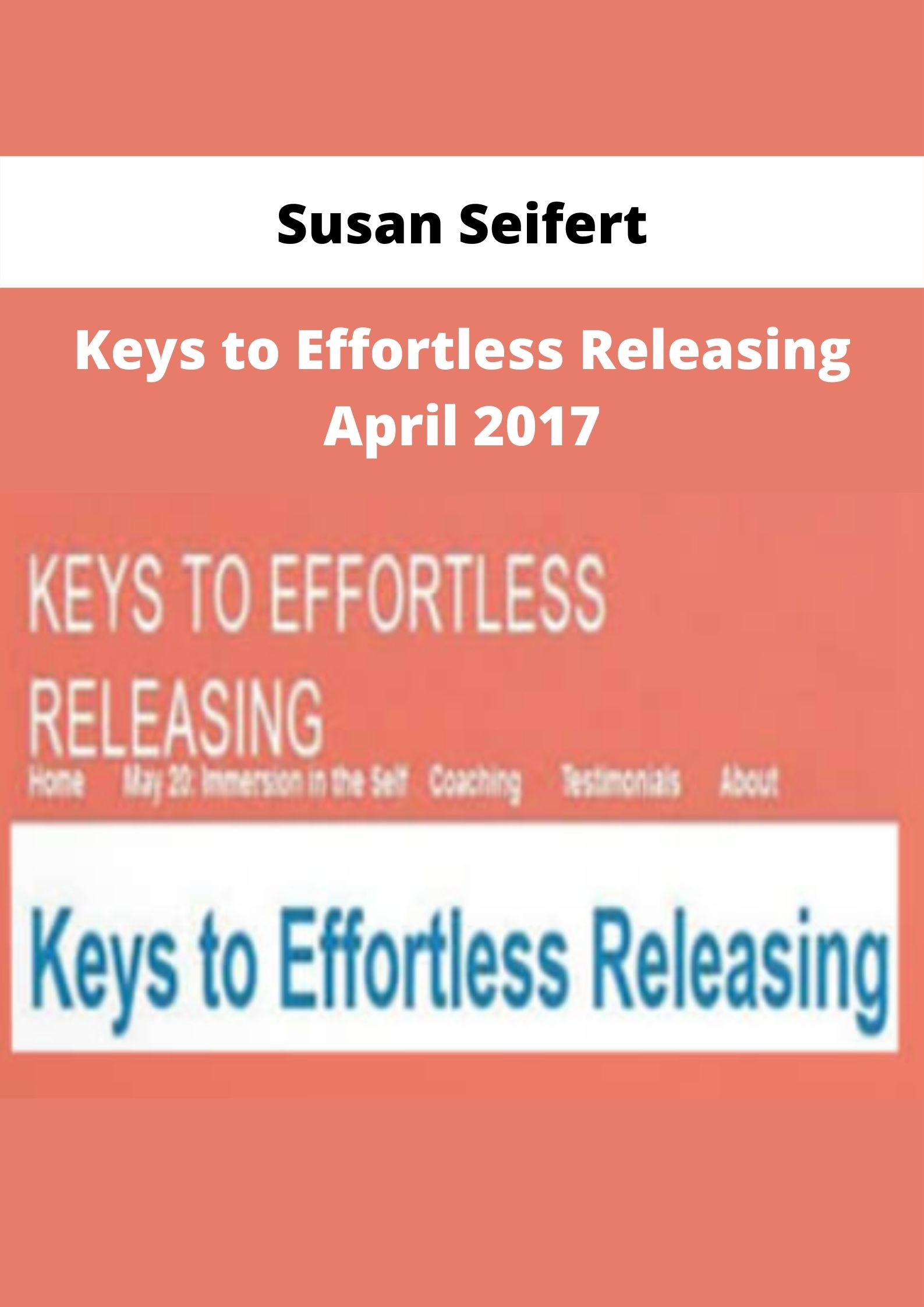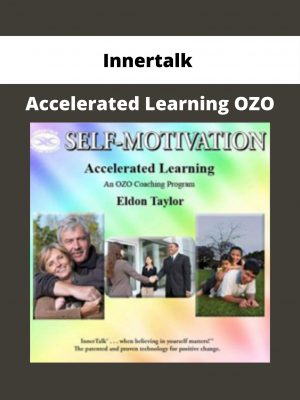Susan Seifert – Keys to Effortless Releasing April 2017
$50 Original price was: $50.$20Current price is: $20.
Shopping Instructions:
- DISCOUNT 15% : SHOP15
- Product Delivery: Within 1 – 12 hours after purchase.
Susan Seifert – Keys to Effortless Releasing April 2017
Sale Page : -/-
Description:
Take your releasing to the next level with a special 2-hour Teleseminar on Saturday, April 22, Keys to Effortless Releasing. This information is not available in the Sedona Method material.
I came by this knowledge the hard way – You see, releasing did not come easy to me.
When I learned the Sedona Method, I had a few powerful releases, but I couldn’t reproduce them. I often wasn’t sure that I had let go. I spent a lot of time trying to let go and getting frustrated – even through several 7- and 9-Day Retreats!
Finally, through persistence and careful attention, I became aware of the actual mechanics of letting go. I discovered the keys to effortless releasing each and every time.
Soon after, I was invited to lead support meetings at Sedona Method Retreats. When I shared my discoveries with others, they too found it transformed their experience of releasing – whether they were new to releasing or had been releasing for decades.
During this teleseminar, you will learn these simple tips to take the effort out of your letting go practice and gain even more from the Sedona Method.
If you have taken this teleseminar before, this meeting will provide a valuable review and reminder. It will allow you ‘reset’ your releasing to effortlessness and presence.
In addition to the tips on releasing without effort, there will be plenty of group releases as well as the opportunity for one-on-one assistance, sharing and questions. Your active participation is welcome but not required in order to gain maximum benefit. Most people listen quietly and follow along without speaking up.
More information about Self Help:
Self-help or self-improvement is a self-guided improvement—economically, intellectually, or emotionally—often with a substantial psychological basis.
Many different self-help group programs exist, each with its own focus, techniques, associated beliefs, proponents and in some cases, leaders.
Concepts and terms originating in self-help culture and Twelve-Step culture, such as recovery, dysfunctional families, and codependency have become firmly integrated in mainstream language.
Self-help often utilizes publicly available information or support groups, on the Internet as well as in person, where people in similar situations join together.
From early examples in self-driven legal practice and home-spun advice, the connotations of the word have spread and often apply particularly to education, business,
psychology and psychotherapy, commonly distributed through the popular genre of self-help books.
According to the APA Dictionary of Psychology, potential benefits of self-help groups that professionals may not be able to provide include friendship,
emotional support, experiential knowledge, identity, meaningful roles, and a sense of belonging.
Please kindly contact us if you need proof of item.
1 review for Susan Seifert – Keys to Effortless Releasing April 2017
Add a review Cancel reply
Related products
Personal Development
Tony Robbins – New Money Masters Elite + Bonuses [Complete Version]
Personal Development
Personal Development
Personal Development
Personal Development
Personal Development
Personal Development




![Tony Robbins – New Money Masters Elite + Bonuses [complete Version]](https://copicourse.com/wp-content/uploads/2021/08/tony-robbins-new-money-masters-elite-bonuses-complete-version-300x400.jpg)







Aidan Wolf –
Quick shipping A+. good product! | Susan Seifert – Keys to Effortless Releasing April 2017